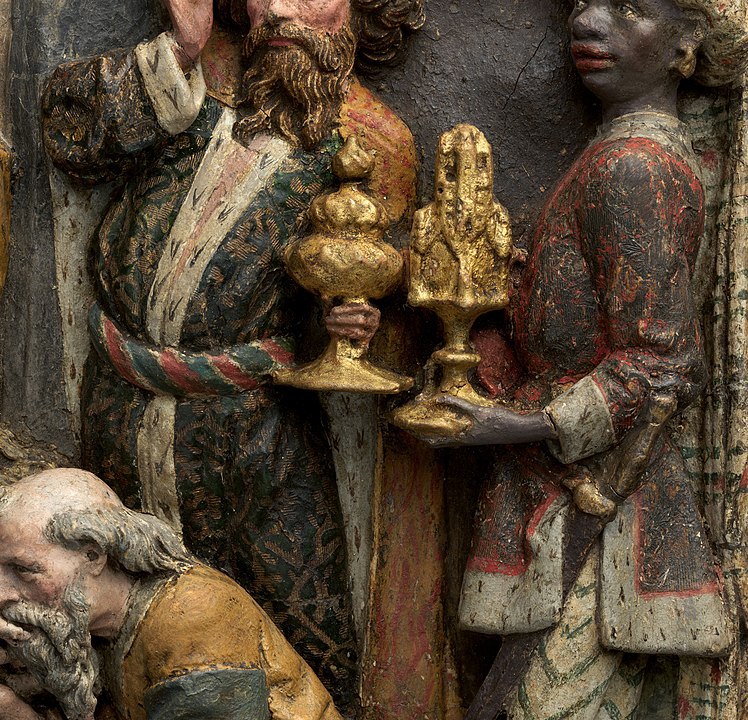Matthew 2.7-12
Reflect:
The magi of Matthew’s Gospel, hailing from “the east” (2.1b), are foreigners who have studied the heavens and have now been divinely led into Jerusalem in search of a newborn king whose power is such that it compels them to offer their worship (2.3). It is here in 2.7-12 where the star from 2.2 reappears to them, as it “went on ahead of them” (2.9a).
This is not the first time that the God of Israel has led a traveling people by means of a heavenly light. The people of Israel, upon being freed from slavery under the tyrannical rule of Pharaoh in Egypt, are led by God through the wilderness and into the land of promise, as He “went on ahead of them in a pillar of fire by night to give them light” (Ex. 13.21).
The star-light from heaven leads the magi directly to the house of Jesus in Bethlehem, “stopping over the place where the child was to be found” (2.9b). Having guided them in this way, the star’s presence is cause for celebration among the magi, as when literally translated, their response is overwhelming- “they rejoiced exceedingly with great joy” (2.10).
The star’s presence is a unique and dramatic presentation of the vast reach of Israel’s God’s power, as surely “the heavens tell of the glory of God, the firmament declares His handiwork” (Ps. 19.1). But lest we overlook it, the star is also a quiet and discreet display of deliverance from God.
For instance, the magi could surely be led to the child by the inhabitants of Bethlehem without the assistance of the star, as they have been given authority and license to search for the child from Herod (2.8). As foreigners entering the city on a mission from the king, their presence alone could command acquiescence from the people. This, coupled with the convening of a search party, would call attention and fanfare from those in the area who have been primed for Israelite liberation at the announcement of a newborn king.
But God keeps this from happening.
The sheer might of Israel’s God having manifested His power by means of a heavenly light should not be downplayed, yet it cannot be ignored that the star itself has not brought forth the masses from the community. It instead beams downward to the house of the king, quietly guiding the magi.
They do not rely on the inhabitants of Bethlehem to lead them to Jesus, nor do they arrive at his home with any faction of Israelite hopefuls, armed and ready to assemble a brigade and begin a resistance. Rather, they enter the house and find Jesus with his mother, Mary. In their joy, they “fell down and worshiped him” (2.11a).
The reign of this one “son of David”, the king whom the magi have come to worship, is the product of an unexpected beginning, hidden quietly within the mundane life of this Israelite community.
When reading the Bible, many of us have been taught to focus solely on the miraculous at the expense of the mundane. Yet here at the beginning of the story of “the Messiah” (1.1) Matthew’s Gospel presents us with something we often unintentionally ignore. Jesus’ story here invites us to come face-to-face with how Israel’s God has chosen to reveal Himself within the unexpected.
As Advent season continues, let us prayerfully ask God to “go on ahead of us”, guiding our paths and giving us eyes to see that which we would otherwise choose to ignore, be it a neighbor, a stranger, or even the newborn king himself. In His mercy, He will.
Marcus Hatcher


 RSS Feed
RSS Feed